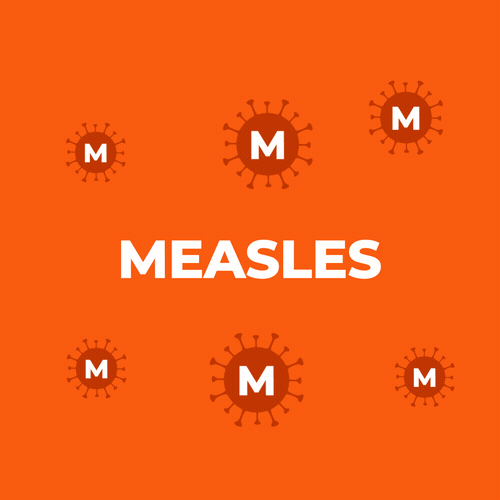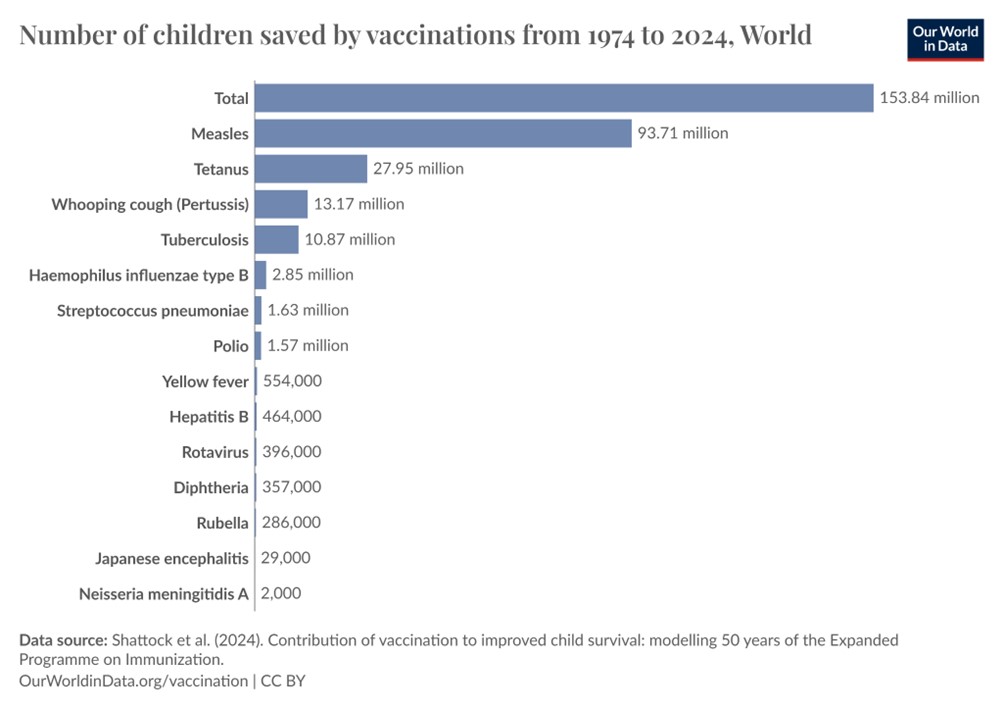Worldwide, there were an estimated 10,300,000 cases of measles in 2023, a 20% increase from 2022, according to new estimates from the World Health Organization (WHO) and the U.S. Centers for Disease Control and Prevention (CDC). In a joint statement, they said inadequate immunisation coverage globally is driving the surge in cases.
Measles is preventable with two doses of measles vaccine, yet more than 22 million children missed their first dose of measles vaccine in 2023. Globally, an estimated 83% of children received their first dose of measles vaccine last year, while only 74% received the recommended second dose.
Coverage of 95% or greater of two doses of measles vaccine is needed in each country and community to prevent outbreaks and protect populations from one of the world’s most contagious human viruses. Measles can spread rapidly unless vaccination rates are strong.

‘Measles vaccine has saved more lives than any other vaccine in the past 50 years,’ said Dr Tedros Adhanom Ghebreyesus, WHO Director-General. ‘To save even more lives and stop this deadly virus from harming the most vulnerable, we must invest in immunisation for every person, no matter where they live.’
Vaccines have saved 150 million lives over the past 50 years. Measles vaccines account for more than 60% of this enormous impact – an estimated 94 million people’s lives.

As a result of global gaps in vaccination coverage, 57 countries experienced large or disruptive measles outbreaks in 2023, affecting all regions except the Americas, and representing a nearly 60% increase from 36 countries in the previous year. The WHO African, Eastern Mediterranean, European, South-East Asia and Western Pacific regions experienced a substantial upsurge in cases.
Read: Measles on the rise in Europe (again)
In Europe, measles vaccines have saved 7.28 million lives between 1974 and 2004. However, measles outbreaks have been recorded in several countries, including in Romania and Austria.

The WHO described the global surge in cases as ‘unacceptable’, adding that most of the 107,500 measles deaths in 2023 were recorded in children younger than five years of age. The total number of deaths is slightly lower than the previous year – despite the rise in cases. This may be because some of the increased case numbers were in regions where children with measles are less likely to die because access to health services is relatively good.
Even when people survive measles, serious health effects can occur, some of which are lifelong, the WHO noted. Infants and young children are at greatest risk of serious complications from the disease, which include blindness, pneumonia, and encephalitis (an infection causing brain swelling and potentially brain damage). Measles can also cause ‘immune amnesia’, effectively wiping the immune system’s memory and leaving people vulnerable to other infections – including colds, flu and pneumonia.
As measles cases surge and outbreaks increase, the world’s elimination goal, as set out in Immunization Agenda 2030, is under threat. Worldwide, 82 countries had achieved or maintained measles elimination at the end of 2023, but many are off track.
Read: Why is measles coming back?
‘The measles vaccine is safe and effective and is available in every country in the world. All deaths from measles are preventable and no child should die from measles anywhere,’ said Natasha Crowcroft, senior technical advisor on Measles and Rubella at the WHO and Measles and Rubella Partnership (M&RP) co-chair. ‘We need concerted action to reach all children with these life saving vaccines.’




